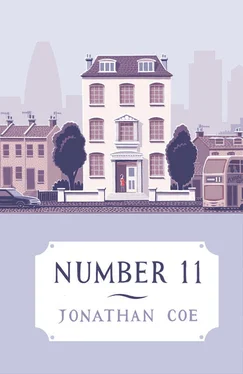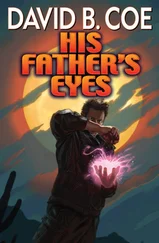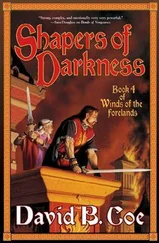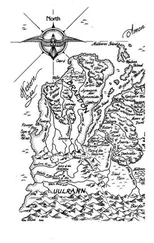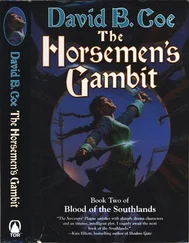Sir Peter was now seventy-six years old, although he showed no signs of retiring: his rampantly illiberal views and irascible personality were so closely identified with the newspaper he edited that it was impossible to imagine the two ever parting company. When Josephine graduated, he temporarily stirred himself out of his state of paternal apathy and offered her, without much enthusiasm, a platform on the newspaper’s website. Josephine took it, of course, but what she really wanted was a regular slot in the print edition. But Sir Peter was reluctant to endorse his daughter’s efforts to that extent. He would relent only occasionally, when a star columnist went on holiday and needed a stand-in, and when this happened Josephine pulled out all the stops. Once, seeking inspiration in the archive of columns from her mother’s glory days, she chanced upon a particularly outrageous example from 1990. Hilary had been enraged by a recent court judgement in favour of a disabled tenant whose landlord had unlawfully evicted her and had railed with unusual vigour against the left-liberal establishment’s skewed value system. ‘The landlord of this property,’ she had written, ‘was a white, middle-class, heterosexual, God-fearing, law-abiding citizen of what used to be Great Britain, and every one of those attributes was a card stacked against her. Were her claims respected? Did her point of view get taken into account? Of course not. Asked to choose between her rights and those of — to choose a scarcely hypothetical example — a black one-legged lesbian on benefits, our judiciary would inevitably come down on the side of the latter.’
In her own column, more than twenty years later, Josephine set about defending the coalition government’s introduction of the Bedroom Tax. But her larger point was that the climate had not changed much in the intervening decades: Britain was being dragged down by an underclass of scroungers, who lived in a ‘something-for-nothing culture’, and Hilary’s ‘black one-legged lesbian on benefits’ could still be held up as a paragon of modern entitlement. It was high time, and only right and proper, that the government should be doing something radical to cut down Britain’s welfare spending.
Sir Peter agreed with her sentiment, but he was not impressed with her reasoning. He thought that the archetype Josephine had resurrected from her mother’s column was hopelessly out of date. ‘You fucked up your argument in the last few paragraphs,’ he told her. ‘A black one-legged lesbian on benefits? Even our readers know there’s no such thing. They’re only worried about Muslims these days. Put your little straw woman in a niqab and then you’ve given them something to worry about.’
Josephine was stung. She went and looked up ‘niqab’ on Wikipedia, and for the next few weeks turned her bile (once again confined to the online edition) on to Britain’s Muslim community, bemoaning its failure to condemn terrorist atrocities and accusing the Left of giving succour to radical preachers. Meanwhile, however, Sir Peter continued to ignore her efforts, and her sense of exclusion stewed. His words ‘Even our readers know there’s no such thing’ gnawed at her soul. Why was her father so dismissive? Why did he assume that, just because he was not paying any attention to her words, nobody else was? Did he not know that her one print column, about which he had been so scathing, had been picked up by a well-known satirical quiz show on television, and mocked and vilified on primetime TV? What was that, if not a badge of honour? Within a few weeks, any stand-up comedian who wanted to milk an easy laugh from his audience had only to mention Josephine’s name. What was that, if not a mark of success?
As a matter of fact, Sir Peter was aware of these developments, and he was furious about them. It was one thing not to think much of his own daughter’s writing; but it was quite different when other people, both inside and outside the paper, began to make fun of her. One quiet afternoon in the newspaper’s offices, a disturbing scene took place. Neale Thomson, the Deputy Features Editor, and Derek Styles, one of the few remaining full-time subs, were sitting at a computer screen watching something on YouTube. They did not realize that Sir Peter had entered the office and was standing directly behind them. They were watching a section from leading stand-up comic Mickey Parr’s DVD, Would You Credit It? — On Stage and On Fire . It was the section where he attacked Josephine Winshaw-Eaves. The routine was not especially funny, but Neale and Derek were enjoying the feeling of behaving like naughty schoolboys, the cosy subversiveness of having a laugh at the expense of the boss’s daughter, and they chuckled along enthusiastically with the live audience. The words that stopped them in their tracks came from a few feet behind them, and were uttered in the unmistakable patrician tones of Sir Peter himself; although they had never heard him speak quite so quietly before, or with such an icy note of menace.
‘Right, you cunts,’ he said, in little more than a whisper. ‘In my office. Five minutes.’
As Neale and Derek told the story to their ex-colleagues in the pub afterwards, it wasn’t the speed of their dismissal that was so shocking: it was the undertone of quivering, barely controlled hatred in Sir Peter’s voice, and the eye-watering inventiveness and cruelty of the violent acts which he swore he would arrange to have performed on them if they ever came within one hundred yards of the building or, indeed, if he ever saw them again. To say that they had touched a raw nerve would, clearly, be an understatement. A brief account of the sackings was included in the next issue of Private Eye , where readers were also offered a recap of some of the more colourful episodes in Sir Peter’s career (a punch-up with a rival editor at a Press Awards dinner; an allegation of assault against a Kensington parking officer, which never came to court). The magazine’s report concluded with one slightly sensationalized detail: the fire in Sir Peter’s eyes as he dismissed the two disgraced employees was described as ‘murderous’.
When he alighted upon the word, which Nathan himself had highlighted in pale green, DCI Capes allowed himself a long, grim smile of satisfaction before laying the magazine down emphatically on the beer-stained table.
‘I see,’ he said. ‘Well, that certainly puts a different light on it.’
‘Now — I’m not saying that we should jump to conclusions,’ Nathan insisted.
‘Of course not.’
‘This is just gossip. It gives us nothing definite to go on.’
‘All the same …’
DCI Capes sat back and drank from his pint of London Pride, deep in thought. He and PC Pilbeam were seated in the public bar of The Feathers, a stone’s throw from New Scotland Yard. It was an old-fashioned pub, where they had found a secluded booth, at some distance from the other patrons. The lighting was dim and their seats were upholstered in discreet burgundy-coloured leather, adding to the atmosphere of subdued conspiracy.
Nathan was delighted, of course — and somewhat astonished — that his email to DCI Capes had elicited this invitation, rather than the expected wall of official silence. All the same, he was beginning to feel uneasy. His own as yet vague intuitions, combined with this one unsourced report in a mischievous magazine, seemed already to have planted in his superior’s mind the certainty of a deliberate, cold-blooded assassination campaign.
In truth, DCI Capes himself was far from certain. But then, certainty was hardly a prerequisite for taking action, in the world of twenty-first-century policing. Many other factors had to be taken into consideration. One factor, in particular, was of paramount importance, and in this case, it loomed very large indeed on DCI Capes’s horizon of considerations. This was the involvement of the media. It was some weeks since he had felt the gaze of a TV camera trained upon him, or had a journalist’s microphone thrust under his nose, and he was beginning to smart keenly from this deprivation. To arrest a national newspaper editor on suspicion of murdering two well-known comedians would certainly bring him back into the limelight.
Читать дальше
